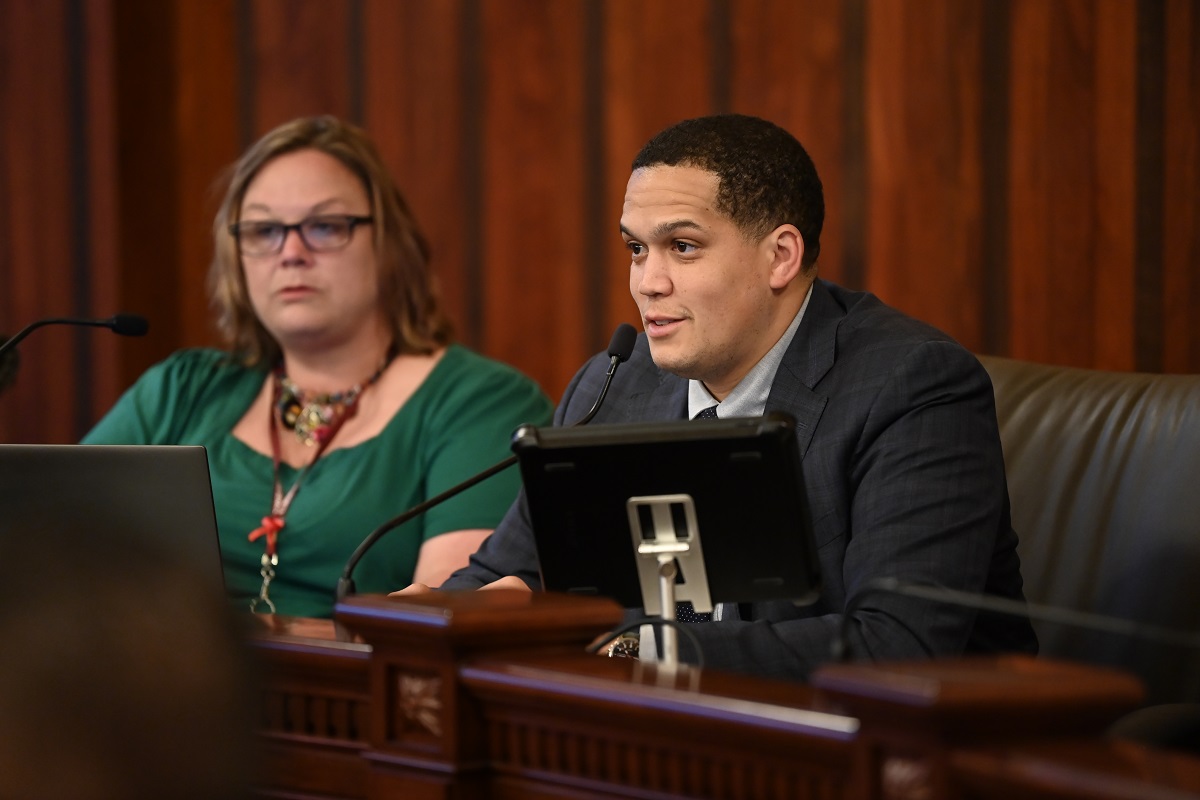 SPRINGFIELD — On Wednesday, the Senate Health and Human Services Appropriations Committee held a subject matter hearing for two measures sponsored by State Senator Robert Peters aimed at delivering community-driven responses to youth violence and trauma by investing nearly $10 million in programs that use sports and healing-centered support to reach Illinois’ most vulnerable communities.
SPRINGFIELD — On Wednesday, the Senate Health and Human Services Appropriations Committee held a subject matter hearing for two measures sponsored by State Senator Robert Peters aimed at delivering community-driven responses to youth violence and trauma by investing nearly $10 million in programs that use sports and healing-centered support to reach Illinois’ most vulnerable communities.
“We know sport is more than a game – it’s a life-changing tool that keeps young people safe, connected and on a positive path,” said Peters (D-Chicago). “Senate Bill 64 would ensure we’re investing in proven strategies that uplift youth and prevent violence where it’s needed most.”
Senate Bill 64 would distribute $5.5 million to the Illinois Department of Human Services for a grant to Laureus Sport for Good Foundation, an organization supporting more than 300 programs in over 40 countries and territories – each using the power of sport to support young people from underserved communities. Through the grant, Laureus would continue to oversee a statewide grant program supporting organizations in low-density residential neighborhoods that leverage sport as a tool for youth development and violence prevention.
Studies have found that youth sport involvement can positively influence the well-being of children across the country – reducing risky behaviors, teaching life skills and promoting positive social environments. Sports also offer a safe space for youth to engage in physical activity, develop social skills and find positive role models, deterring involvement in violence.
To assist communities grappling with the repercussions of violence, Senate Bill 2633 would allot $4 million to IDHS for a grant to Chicago Survivors for family and community services. Chicago Survivors promotes the healing of communities and families affected by violence through empathetic, trauma-informed and multi-faceted approaches to support.
“When a family loses someone to violence, the impact ripples through the entire community,” said Peters. “Senate Bill 2633 would provide families with the healing support they deserve – from trauma-informed care to guidance through the aftermath.”
Community organizations assist families through a range of services, from mental health support to peer connection and prevention and intervention. They also help families navigate complex systems and connect them with advocacy and support groups – helping those affected by loss cope with grief, trauma and the aftermath of violence.
“These grants support real solutions, ones that empower grassroots organizations to do what they do best: save lives, heal pain and build stronger futures,” said Peters.
Peters looks forward to continued conversations with colleagues, advocates and stakeholders in the hopes to advance his legislation.




